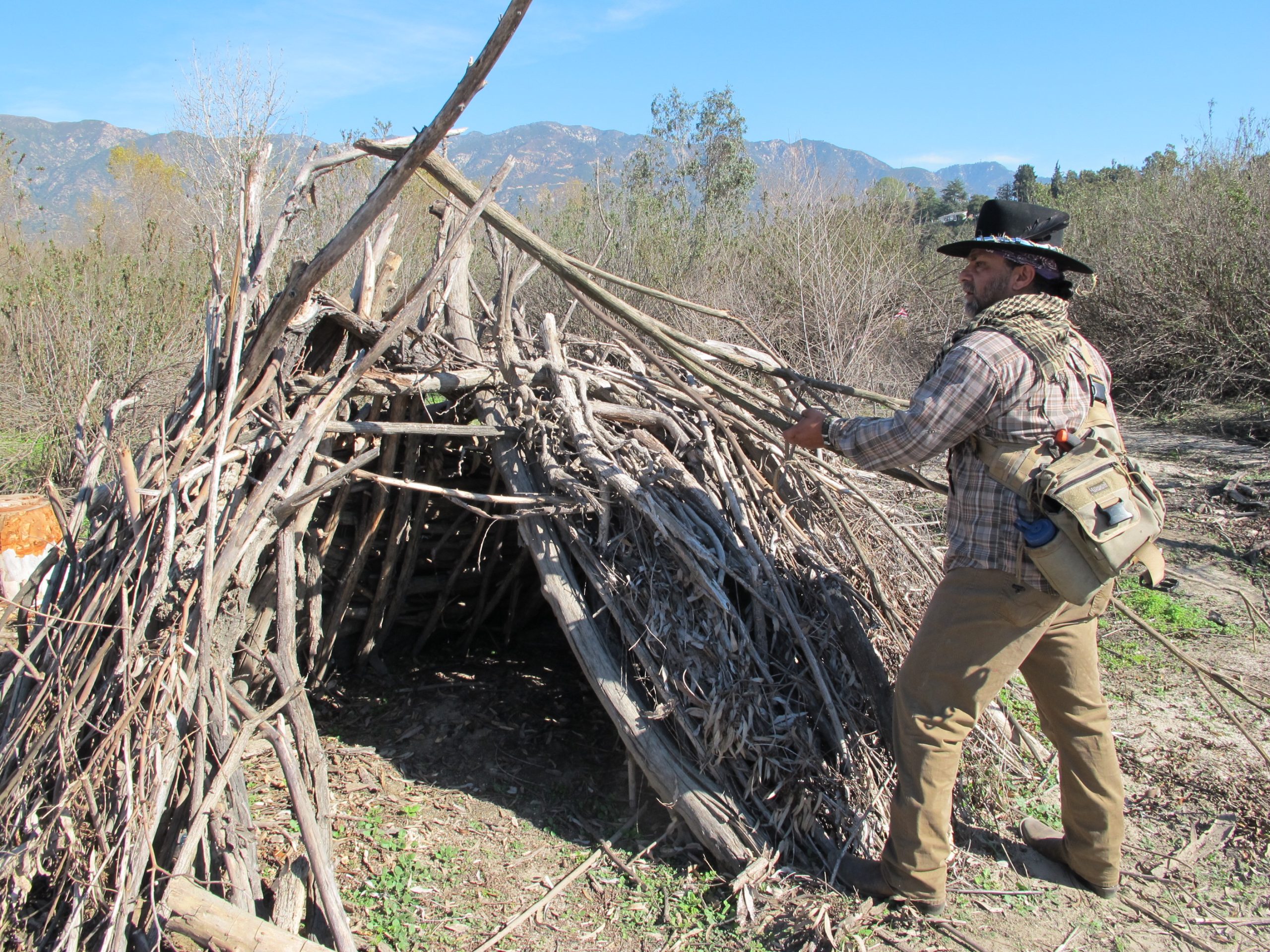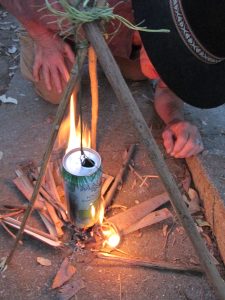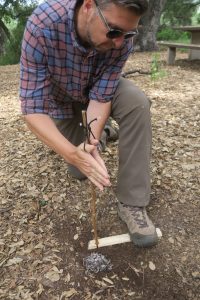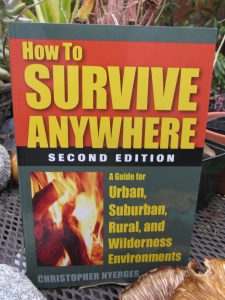LEARNING SURVIVAL SKILLS
Christopher Nyerges [Nyerges has been teaching survival skills since 1974. He is the author of many books, such as “How to Survive Anywhere,” “Urban Survival Guide,” and “Extreme Simplicity.” More information is at www.SchoolofSelf-Reliance.com]
DESERT SURVIVAL OUTINGS
ONE WAY TO PRACTICE FOR EVACUATION
Beginning in the early 1970s, I was a student in the WTI Survival Training School, operating out of northeast Los Angeles. It was founded and operated by Navy veteran Richard E. White, who wanted his students to be physically fit and mentally prepared for disasters.
One of the training regimens was the high desert outings where we’d practice survival skills for a few days. These skills included wild food collections, obtaining water, purifying water, making fire, cooking over a fire, navigation with a compass, some shelter building, creating a toilet, learning to stay clean with little water, communications, some weaponry practice, and more.
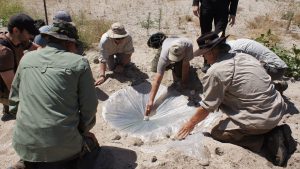
White always insisted that we “keep it real” on our trips, and so while driving to the desert site, we were to mentally pretend that we were departing from the city due to a nuclear attack, and we were to not talk about mundane matters. “Remember, this is not for fun and this is not a vacation,” Mr. White, the sensei of the school, would remind the participant.
Our site was five acres of open desert surrounded by miles of more open desert. The California Aqueduct was about two miles to the south, and to the north were stands of Joshua trees, and then mountains. There was typical plant life, which was profuse after the rains, and sparse the rest of the year.
Our “Bring List” included those thing that we’d need to survive and start over if we couldn’t go back to the city. Though we never had to completely live out of our meagre packs, we did realize that every need which the stuff in our homes fulfilled, we’d now have to let nature fulfil that need.
We dug toilet pits and made them private. We built fires for cooking and warmth and light. We dug for our water and we walked to and from the aqueduct with buckets of water. We learned how to eat some of the few foods that we could find in the desert – like yucca fruits, cactus, buckwheat seeds, wild mustards – and we utilized road kill that was not too old. We taught each other how to align the map of the area with our compasses, and we learned to walk in straight lines with the compass.
Though these field trips were never easy, and never what we’d call fun, we all went home realizing that we could survive, and survive well, by working together and sharing our skills. We learned that we could sleep without a sleeping bag, and without a bed in a bedroom. We realized that though we preferred a flush toilet and a running water, we could handle all our needs by our thoughtful use of the resources in our environment.
These field trips fulfilled two goals, maybe more. We developed wilderness survival skills, some of the basic outdoor skills found in books such as Larry Dean Olsen’s classic “Outdoor Survival Skills.” And even though we were never forced to evacuate due to a natural disaster, we developed the knowledge of which things we needed, and which were unnecessary. If we ever had to run away from our homes, and to find refuge somewhere else, we each felt that we’d know which skills were necessary, and what gear would be the most useful.
To reiterate, we developed the necessary skills for surviving in the wilderness, and for evacuating, and for getting started again, not by thinking about it, and not by reading about it, and not by watching videos. We were not the smartest and we were not the richest. With our meagre budget and with our ruling desire to learn these skills, we practiced each of the component part until we were comfortably familiar with them.
If you simply cannot get out into the field right away, you could get a feel for it if you intently watch a few key movies, while constantly trying to feel would it would be like to be in that situation, and constantly asking yourself what you would do. Consider such movies as the original “Lord of the Flies,” the original “Flight of the Phoenix,” “Z is for Zaccharia,” “The Day After Tomorrow,” “The Book of Eli,” and many others.
Plus, in my case, I grew up with my mother, a staunch Catholic, often talking about “the end of the world,” with whatever variation of that concept that she got from the church and from her conversations with friends who were knowledgeable about the Lady of Lourdes and the many prophecies that arose therefrom. This was the late 1960s and my mother was so concerned that she asked me to store water for the family in case of a pending crisis. I didn’t know much about the prophecies of Lourdes, but I was concerned about earthquake preparedness, and I eventually took care of our family’s water storage, at minimal cost. I got about 40 5-gallon buckets from local bakeries and delis for free, cleaned them, filled them with water, and stored them in our cellar. So I was primed to think about emergencies and to take some sort of pro-active action.
In high school, one of my best friends, Nathaniel, and I got very interested in hiking, biking, and wild foods. We would read supposed CIA reports that announced that the U.S. would experience a crippling famine by the late 70s. We would discuss the consequences of such a famine, such as civil breakdown, no law and order, and maybe even cannibalism. Of course, we had no way of knowing that most of the dire news was being pushed by those who were selling buckets of “survival food,” nor did we realize that economic incentive and new technologies made the feeding of more people possible. The famine never materialized, and we just continued to learn about wild foods and how to use them.
And we always tried to keep our eyes and ears open, ever aware to the constant challenges to human culture all over the world, all the time: war, civil unrest, earthquakes, mudslides, flooding, fires, tsunamis, hurricanes, etc.
Yes, we have been grateful and thankful that (so far) our lives have not been shortened and our homes destroyed by any of the natural or man-made disasters. The occurrence of disasters seems to be never-ending, so we do our best to never become complacent.

